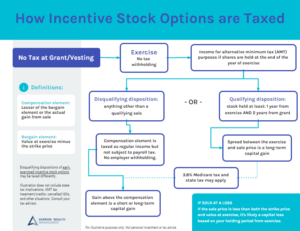What are the benefits of setting up a trust?
As your wealth builds, you’re likely weighing the decision about whether to set up a trust. While trusts have the reputation of only being used for vast fortunes, they can be a very useful estate planning tool even if you didn’t make it onto the Forbes Billionaire List. In addition to allowing for effective estate tax planning, there are other benefits of setting up a trust, like the ability to avoid probate and maintaining control over the timing and distribution of assets after death.
What is a trust?
A trust is a type of legal entity that you transfer assets to, either during your lifetime or upon death, to accomplish various financial goals. Trusts come in many forms, which depend on your intentions and the beneficiary’s needs (charitable, special needs, leaving your estate to spouse, leaving a home to your family, etc.).
The most common is a revocable living trust. Setting up a trust also allows you to choose a third party, known as a trustee, who has a fiduciary duty to manage the trust and distributions to beneficiaries according to your wishes.
5 benefits of setting up a trust
Depending on your specific situation, there can be significant benefits of setting up a trust.
- Control: a trust gives you the control to manage your assets during and after your life. A revocable trust allows you to maintain control over assets, while also specifying the beneficiaries and disbursement schedule, when the time comes. A lesser-known pet trust can help ensure your beloved pets are provided for after you’re gone.
- Taxes: with the right estate planning strategy, assets placed in a trust may reduce or eliminate state and federal estate taxes at death.
- Avoid probate court: having a will alone doesn’t ensure your estate won’t end up in probate court. Not only does probate delay distribution of assets, but it is costly and doesn’t guarantee your wishes will be fulfilled.
- Trustee: the ability to name an independent trustee is often overlooked. Family members are often appointed as trustees, but depending on the situation, it can be burdensome or strain the family dynamics.
- Planning for the disabled or special needs: if you’re leaving money behind to someone who’s disabled, a trust can help ensure they aren’t disqualified for Medicaid and other government programs.
Based on your legacy goals, beneficiaries, and the size of the estate, there are a number of trust structures that could be suited for your needs. Tax laws also vary depending on your state of residence and the type of trust (revocable versus irrevocable). It is important to fully explore your options with an attorney who specializes in estate planning to ensure the trust is aligned with your wishes and maximizes any tax benefits in the process. Remember, a trust is different from a will, so you may need both.
Should Married Couples Use Joint or Separate Trusts?
How to set up a trust
You’ll want to find a trust and estate attorney to assist in drafting your estate plan. The cost of legal fees will depend on a variety of factors, most notably how complex the trust will be.
And if you do draw up a trust, make sure to follow through and get assets retitled into the name of the trust! This is called funding a trust. Otherwise the trust document has no power to control how your assets are handled.
Important disclosure: The material in this article is for general information only. Discussions of some of the financial planning considerations regarding trusts should not be misconstrued as the rendering of personal legal or tax advice. We strongly recommend you consult an attorney to discuss your personal situation and estate planning needs. Darrow Wealth Management offers Private Wealth and Asset Management to individuals and families; we do not provide legal or tax advice.
Last reviewed January 2024










